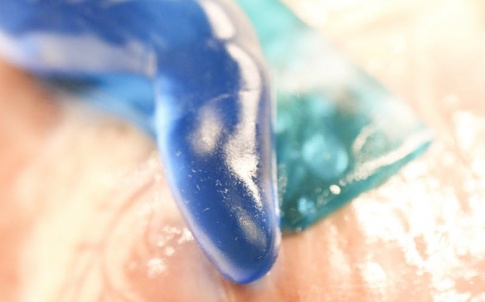Slug-inspired bio-glue binds like cartilage
A team of Harvard engineers has developed a new bio-glue inspired by slugs that has a range of potential medical applications.

(Credit: Wyss Institute at Harvard University)
The research was carried out by members of Harvard’s Wyss Institute for Biologically Inspired Engineering and John A Paulson School of Engineering and Applied Sciences (SEAS). Seeking to improve on current medical adhesives, the team was inspired by the slug, which secretes a special mucus when threatened that helps it stay fixed to its surface.
Previous studies had shown the mucus was formed of a tough matrix interspersed with positively charged proteins. This inspired the Harvard team to create a double-layered hydrogel, consisting of an alginate-polyacrylamide matrix. The matrix then supports an adhesive layer that has positively charged polymers protruding from its surface.
These polymers form a triple bond with biological surfaces: via electrostatic attraction, covalent bonds and physical penetration. According to the team, the hydrogel’s strength and flexibility come from a combination of the polymers and the supporting matrix.
Register now to continue reading
Thanks for visiting The Engineer. You’ve now reached your monthly limit of news stories. Register for free to unlock unlimited access to all of our news coverage, as well as premium content including opinion, in-depth features and special reports.
Benefits of registering
-
In-depth insights and coverage of key emerging trends
-
Unrestricted access to special reports throughout the year
-
Daily technology news delivered straight to your inbox










Simulations show Optimal Design for Bladeless Wind Turbines
"an 80cm mast" Really? I'm short but that's only half my height! Do they mean 800cm?